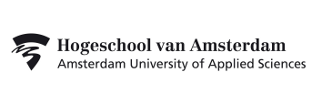Groningen
Ph.D. Position in Polymer Technology and Medical Implant Development
28.03.2024
- WO
- Tijdelijk
Universitair Medisch Centrum Groningen (UMCG)
Functieomschrijving
Owing to its superior mechanical, biocompatible, and biodegradable properties, polylactic acid (PLA) has been largely employed to fabricate bone implants. As the PLA implants will slowly degrade over time while the bone is regenerating, a surgical removal of the implant is not needed. However, matching the degradation speed to tissue regeneration, while ensuring excellent mechanical properties is still challenging, and hence composites, potentially including bioactive components, would offer an ideal solution. Recently, we have shown that composites consisting of PLA and colloidal particles, namely hydrotalcites (HTCs), are promising candidates to fabricate implants because of enhanced mechanical properties of the PLA-HTC composite, and the controlled release properties from HTCs. Although, both materials are already approved for clinical use, the implementation of this new approach at large scales and making it clinically applicable, requires more efforts.
In this project UMCG (medical faculty), FSE (Science & Engineering), Polyvation, ELBO Technics and Kisuma Chemicals join forces in order to: i) develop PLA/HTC composites production using a large-scale extrusion-based compounder; ii) assessing the mechano-structural properties of PLA/HTC composites with varying HTC content; iii) control of the degradation profile as a function of the PLA/HTC composition; iv) identification of the operating conditions for the fabrication of precisely-controlled prototypes via injection molding and 3D-printing, fulfilling the same specifications of the state-of-the-art implants; v) introduce regenerative bone formation via bone morphogenic drug-loaded HTCs.
This project aims to deliver novel PLA-based bone crews and plates, ready for clinical translation, along with a detailed strategy for a large-scale production.
In this project UMCG (medical faculty), FSE (Science & Engineering), Polyvation, ELBO Technics and Kisuma Chemicals join forces in order to: i) develop PLA/HTC composites production using a large-scale extrusion-based compounder; ii) assessing the mechano-structural properties of PLA/HTC composites with varying HTC content; iii) control of the degradation profile as a function of the PLA/HTC composition; iv) identification of the operating conditions for the fabrication of precisely-controlled prototypes via injection molding and 3D-printing, fulfilling the same specifications of the state-of-the-art implants; v) introduce regenerative bone formation via bone morphogenic drug-loaded HTCs.
This project aims to deliver novel PLA-based bone crews and plates, ready for clinical translation, along with a detailed strategy for a large-scale production.
Functie-eisen
We are looking for an excellent, creative, and highly motivated colleague with:
- An M.Sc./Master’s degree in polymer engineering/technology, materials sciences, or equivalent engineering degrees with a focus or experience in composites and compounding.
- Passion for translational research at the interface of polymer materials, chemical engineering, and clinical practice.
- Demonstrable research experience in polymer technology, extrusion, composites, added manufacturing techniques, drug delivery, rheology, and product design. The candidate must have experience in more than one of the mentioned topics.
- Demonstrable research experience in use of biodegradable polymers
- Excellent command of written and spoken English.
- Eager to learn and collaborate with clinical, industrial, and biomedical partners.
- Well-developed communication and collaboration skills.
Ph.D. students are expected to develop scientific independence and complete research projects. Enthusiastic Ph.D. students will push developments in the field, proactively communicate research results, supervise B.Sc. and M.Sc. students, and work effectively in a team and collaborate across disciplines. We are looking forward for you to joining our team to create new biomedical composites for biodegradable implant materials.
- An M.Sc./Master’s degree in polymer engineering/technology, materials sciences, or equivalent engineering degrees with a focus or experience in composites and compounding.
- Passion for translational research at the interface of polymer materials, chemical engineering, and clinical practice.
- Demonstrable research experience in polymer technology, extrusion, composites, added manufacturing techniques, drug delivery, rheology, and product design. The candidate must have experience in more than one of the mentioned topics.
- Demonstrable research experience in use of biodegradable polymers
- Excellent command of written and spoken English.
- Eager to learn and collaborate with clinical, industrial, and biomedical partners.
- Well-developed communication and collaboration skills.
Ph.D. students are expected to develop scientific independence and complete research projects. Enthusiastic Ph.D. students will push developments in the field, proactively communicate research results, supervise B.Sc. and M.Sc. students, and work effectively in a team and collaborate across disciplines. We are looking forward for you to joining our team to create new biomedical composites for biodegradable implant materials.
Arbeidsvoorwaarden
We offer 1 fulltime research position within the Department of Biomedical Engineering. The position is for four years. However, you will get a fulltime contract for 1 year, which will be extended for 3 years after evaluation. Extension of the contract will be based on sufficient progress and the expectation of a successful completion of the Ph.D. project. Your salary will be € 2.901 gross per month in the first year up to a maximum of € 3.677 gross per month in the 4th year, based on a full-time appointment.
In addition, the UMCG will offer you 8% holiday pay, and 8.3% end-of-year bonus. The conditions of employment comply with the Collective Labour Agreement for Medical Centres (CAO-UMC).
Applications by female scientists and candidates from underrepresented minorities are especially encouraged.
In addition, the UMCG will offer you 8% holiday pay, and 8.3% end-of-year bonus. The conditions of employment comply with the Collective Labour Agreement for Medical Centres (CAO-UMC).
Applications by female scientists and candidates from underrepresented minorities are especially encouraged.
Meer informatie
Dr. Patrick van Rijn
p.van.rijn@umcg.nl
p.van.rijn@umcg.nl



